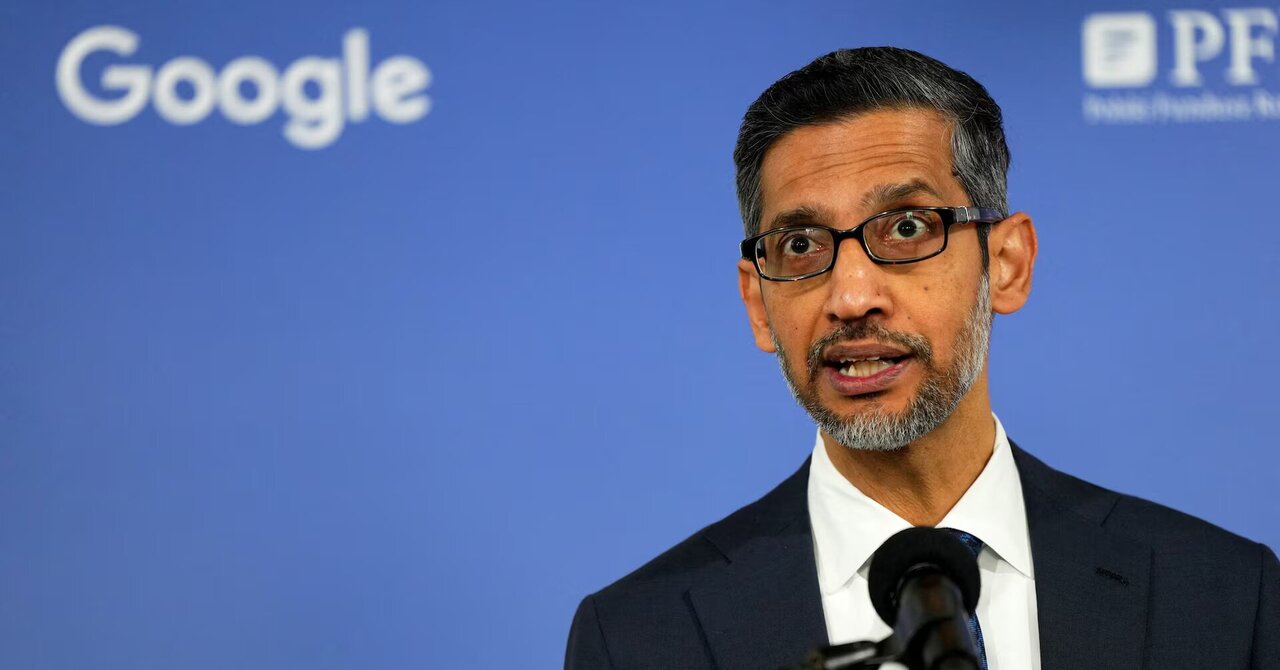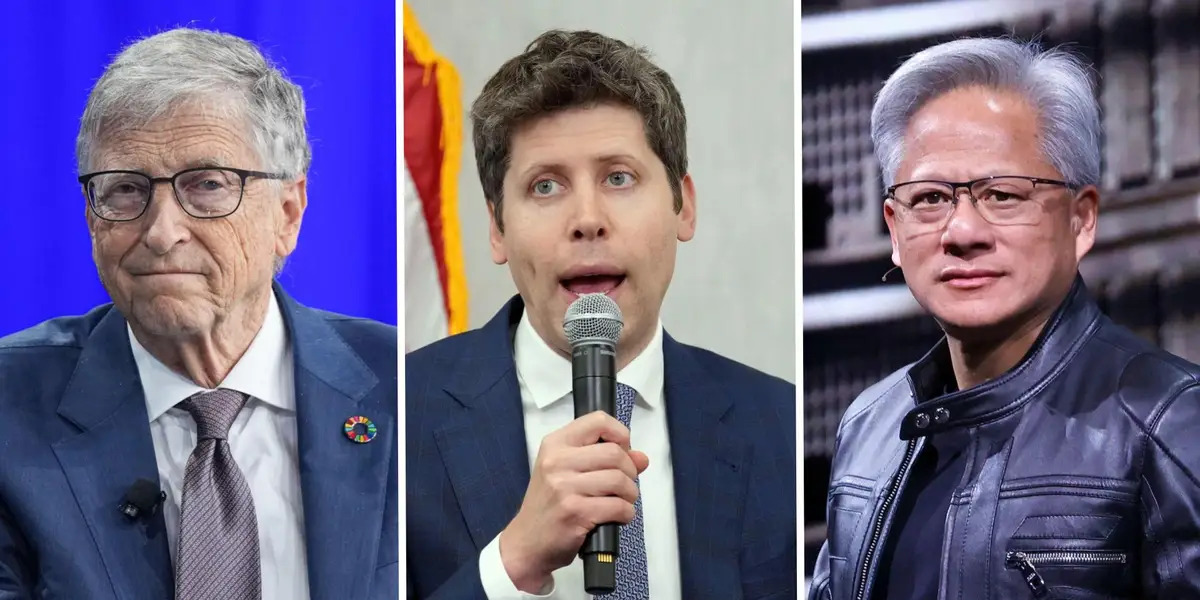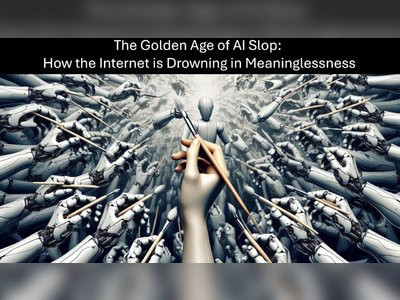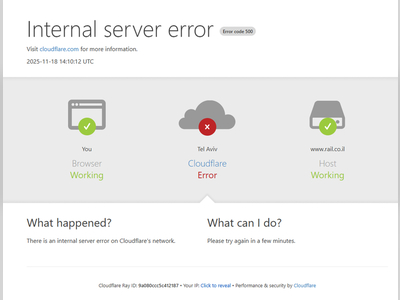Google CEO Warns That No Tech Giant Is Safe if the AI Boom Turns Into a Bubble
Sundar Pichai says the global surge in artificial-intelligence investment contains irrational elements and could expose every company, including Google, to risk.
Sundar Pichai, chief executive of Alphabet and leader of Google for a decade, has issued one of the clearest warnings yet about the extraordinary scale—and vulnerability—of the artificial-intelligence boom.
In a wide-ranging discussion on the state of the industry, Pichai said that the current rush into AI investment carries unmistakable signs of excess.
While the technology is transformative, he cautioned, no firm should assume it is protected if the market overheats and contracts.
He described the present moment as one of Silicon Valley’s great historical inflection points, comparable to the arrival of the personal computer, the rise of the internet and the revolution brought by mobile computing.
Yet, unlike earlier cycles, the speed and magnitude of AI expansion is unprecedented.
Google’s annual capital expenditure has surged from under thirty billion dollars only four years ago to more than ninety billion this year.
Across the wider sector, Pichai noted that companies have poured well over one trillion dollars into building the chips, data centres and specialised infrastructure needed to fuel AI.
Despite this momentum, Pichai acknowledged that the frenzy contains stretches of irrational enthusiasm.
He reminded audiences that the internet boom of the late 1990s also saw massive overinvestment, even though the underlying technology ultimately reshaped global society.
AI, he suggested, will follow a similar pattern: profound, world-changing, but not immune to sharp corrections.
If the industry overshoots, he said plainly, “no company is going to be immune—including us”.
Pichai also emphasised the enormous environmental and logistical burden imposed by generative-AI systems.
Their energy requirements are already forcing governments to rethink national infrastructure, from power grids to semiconductor manufacturing.
Without large-scale public investment, he warned, demand for AI may outpace the world’s ability to support it, putting long-term reliability at risk.
Beyond market dynamics, Pichai addressed a concern now familiar to anyone using AI tools: trust.
He urged users not to treat chatbots or generative systems as sources of unquestioned truth.
These models, he said, remain prone to errors, hallucinations and inconsistencies.
AI can enhance human capability, but it should never replace critical thinking or verification.
Economists observing the sector note a widening gap between diversified giants—Google, with vast search and cloud revenue—and small AI-only firms whose valuations are soaring far beyond their commercial footing.
Some investors expect a coming shakeout resembling the early-2000s dot-com correction, where weaker firms collapsed while the strongest emerged even more dominant.
Others warn that exotic financing structures and speculative lending are already seeping into the AI ecosystem.
Still, many industry leaders agree with Pichai that AI’s long-term impact is undeniable.
The real question is how much instability the market must endure before the technology reaches maturity.
For societies around the world—families, workers, governments—the coming years will carry both extraordinary promise and unavoidable turbulence.
And as the world accelerates into an AI-driven era, Pichai’s warning lands with unmistakable clarity: innovation may be unstoppable, but stability is not guaranteed.
In a wide-ranging discussion on the state of the industry, Pichai said that the current rush into AI investment carries unmistakable signs of excess.
While the technology is transformative, he cautioned, no firm should assume it is protected if the market overheats and contracts.
He described the present moment as one of Silicon Valley’s great historical inflection points, comparable to the arrival of the personal computer, the rise of the internet and the revolution brought by mobile computing.
Yet, unlike earlier cycles, the speed and magnitude of AI expansion is unprecedented.
Google’s annual capital expenditure has surged from under thirty billion dollars only four years ago to more than ninety billion this year.
Across the wider sector, Pichai noted that companies have poured well over one trillion dollars into building the chips, data centres and specialised infrastructure needed to fuel AI.
Despite this momentum, Pichai acknowledged that the frenzy contains stretches of irrational enthusiasm.
He reminded audiences that the internet boom of the late 1990s also saw massive overinvestment, even though the underlying technology ultimately reshaped global society.
AI, he suggested, will follow a similar pattern: profound, world-changing, but not immune to sharp corrections.
If the industry overshoots, he said plainly, “no company is going to be immune—including us”.
Pichai also emphasised the enormous environmental and logistical burden imposed by generative-AI systems.
Their energy requirements are already forcing governments to rethink national infrastructure, from power grids to semiconductor manufacturing.
Without large-scale public investment, he warned, demand for AI may outpace the world’s ability to support it, putting long-term reliability at risk.
Beyond market dynamics, Pichai addressed a concern now familiar to anyone using AI tools: trust.
He urged users not to treat chatbots or generative systems as sources of unquestioned truth.
These models, he said, remain prone to errors, hallucinations and inconsistencies.
AI can enhance human capability, but it should never replace critical thinking or verification.
Economists observing the sector note a widening gap between diversified giants—Google, with vast search and cloud revenue—and small AI-only firms whose valuations are soaring far beyond their commercial footing.
Some investors expect a coming shakeout resembling the early-2000s dot-com correction, where weaker firms collapsed while the strongest emerged even more dominant.
Others warn that exotic financing structures and speculative lending are already seeping into the AI ecosystem.
Still, many industry leaders agree with Pichai that AI’s long-term impact is undeniable.
The real question is how much instability the market must endure before the technology reaches maturity.
For societies around the world—families, workers, governments—the coming years will carry both extraordinary promise and unavoidable turbulence.
And as the world accelerates into an AI-driven era, Pichai’s warning lands with unmistakable clarity: innovation may be unstoppable, but stability is not guaranteed.













